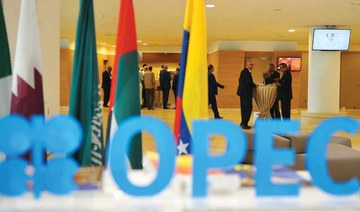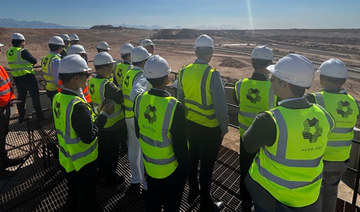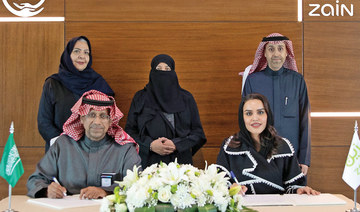NEW DELHI: When India’s government last month asked refiners to speed up diversification and reduce dependence on the Middle East — days after OPEC+ said it would maintain production cuts — it sent a message about its clout and foreshadowed changes to the world’s energy maps.
It was a move that had been in the works for years, fueled by repeated comments from Indian Oil Minister Dharmendra Pradhan, who in 2015 called oil purchases a “weapon” for his country.
When the Organization of Oil Exporting Countries and Major Producers (OPEC+) extended the production cuts into April, India unsheathed that weapon. Indian refiners plan to cut imports from the Kingdom by about a quarter in May, sources told Reuters, dropping them to 10.8 million barrels from monthly average of 14.7-14.8 million barrels.
Oil secretary Tarun Kapoor, the top bureaucrat in the ministry, told Reuters that India is asking state refiners to jointly negotiate with oil producers to get better deals, but declined to comment on plans to cut Saudi imports.
“India is a big market so sellers have to be mindful of our country’s demand as well to keep the long-term relationship intact,” he said.
The Saudi state oil company Saudi Aramco and the Saudi energy ministry declined to comment.
Pradhan, who sees high oil prices as a threat to India’s recovering economy, said he was saddened by the OPEC+ decision. India’s fuel import bill has rocketed, and fuel prices – inflated by government taxes imposed last year — have hit records.
The International Energy Agency forecasts India’s consumption to double and its oil import bill to nearly triple from 2019 levels to more than $250 billion by 2040.
An oil ministry official, who declined to be named because of the sensitivity of the matter, said the OPEC+ cuts have created uncertainty and made it difficult for refiners to plan for procurement and price risk.
It also creates opportunities for companies in the Americas, Africa, Russia and elsewhere to fill the gap.
If India is successful, it will set an example for other countries. As buyers see more affordable choices and renewable energy becomes increasingly common, the influence of big producers like Saudi Arabia could wane, altering geopolitics and trade routes.
India’s oil demand has risen by 25 percent in the last seven years — more than any other major buyer — and the country has surpassed Japan as the world’s third-largest oil importer and consumer.
The country has already curbed its reliance on the Middle East from more than 64 percent of imports in 2016 to below 60 percent in 2019.
That trend reversed in 2020, however, when the pandemic pummelled fuel demand and forced Indian refiners to make committed oil purchases from the Middle East under term contracts, shunning spot purchases.
As India shifts gears again after Pradhan’s call for faster diversification, refineries are looking for new suppliers, the oil ministry official said.
Costly refinery upgrades that allow for the processing of cheaper, heavier oil grades have encouraged importers to seek out far-flung sources. HPCL-Mittal Energy Ltd. bought the country’s first cargo from Guyana this month, and Mangalore Refinery and Petrochemicals Ltd. just imported Brazilian Tupi crude for the first time.
In past years, refiners have jointly negotiated oil deals with sanctions-hit Iran, which offered free shipping and price discounts, and now plan to do the same with other producers.
Since the break with Saudi Arabia began, Pradhan has had meetings with United Arab Emirates’ minister of state and chief executive of Abu Dhabi National Oil Co. (ADNOC), Sultan Ahmed Al Jaber, and US energy secretary Jennifer Granholm to strengthen energy partnerships.
Pradhan recently said African nations could play a central role in India’s oil diversification. The country is looking at signing long-term oil supply deal with Guyana and exploring options to raise imports from Russia, the oil ministry source said.
A separate Indian government source said the government expects Iranian sanctions to ease in three to four months, potentially offering India a cheaper alternative to Saudi oil.
Two traders agreed that Iran stood a good chance to benefit from India’s shift, as did Venezuela, Kuwait and the United States. An Indian refinery source said the US, Africa, Kazakhstan’s CPC Blend and Russian oil would probably get a look too.
Although Indian importers will scoop up increasing volumes of attractively priced global grades, most analysts expect the Middle East to remain India’s primary oil supplier, mainly because of lower shipping costs.
India’s oil ministry is working with refiners on a framework to jointly negotiate terms with suppliers.
“Buyers have alternatives in today’s market and these alternatives are going to multiply going forward,” Kapoor said. “There are so many companies in India that do buying at their own level, so these companies coming together also becomes quite a big bloc.”
On Thursday, OPEC+ agreed after discussions with US officials to ease oil curbs beginning in May.
Analysts say the oil spat does not need to spill over into broader strategic ties in other sectors, including defense.
Power play: India to cut dependence on Mideast oil
https://arab.news/nraer
Power play: India to cut dependence on Mideast oil
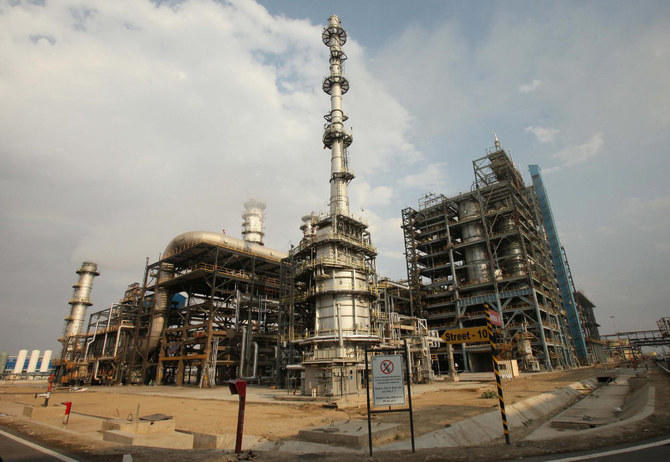
- Indian refiners to cut imports from the Kingdom by a quarter in May
- India 'saddened' by OPEC+ decision to maintain cuts through April
Saudi tourism fund signs MoU for development of resorts in Kingdom
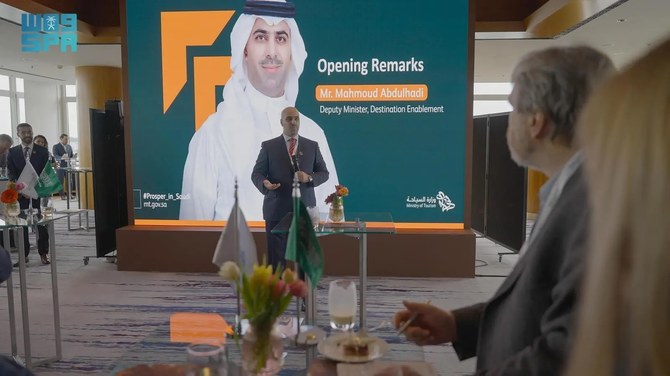
RIYADH: Saudi Arabia is set to witness the development of new luxury resorts as the Tourism Development Fund signed a memorandum of understanding with Karisma Hotels and Resorts International, the Saudi Press Agency reported.
The signing took place at the International Hospitality Investment Forum in Berlin on Wednesday. The MoU seeks to explore opportunities for developing resorts and enhancing new areas of the tourism and hospitality sector in the Kingdom.
The agreement outlines a roadmap to determining a methodology for investing and providing financial and non-financial support to a vibrant ecosystem of investors, clients, and partners.
“The Tourism Development Fund is unlocking a great potential with Karisma Hotels and Resorts as we join forces to explore the feasibility of funding and supportive innovative projects that will significantly contribute to the growth of the tourism sector,” SPA quoted TDF CEO Qusai Al-Fakhri as saying.
The fund aims to connect the world with opportunities in the Kingdom’s fast-growing tourism sector. It offers financial and non-financial support to international and local investors.
“We are proud to announce the company’s significant entrance into Saudi Arabia with multiple hotel developments throughout the Kingdom in collaboration with our partners and local developers. Karisma will introduce first-of-its-kind experiential leisure hotels in partnership with worldwide acclaimed brands, bringing a new offering of leisure vacations to the Kingdom,” Esteban Velasquez, CEO of Karisma Hotels and Resorts, said.
Saudi Arabia’s tourism sector has revised its 2030 target to 150 million visitors, up from the initial 100 million.
The tourism sector has become important to the national economy, as spending on tourism by domestic and international tourists exceeded SR250 billion ($66.7 billion) in 2023. The sector is set to contribute 10 percent to the non-oil gross domestic product and create 1 million job opportunities by 2030. This spending represented more than 4 percent of the Kingdom’s GDP and 7 percent of the non-oil GDP, highlighting the significance of the tourism sector to the Kingdom’s economy.
During a panel discussion, Mahmoud Abdulhadi, deputy minister of investment attraction, underscored the Kingdom’s potential opportunities for both international and local businesses to invest in the tourism industry.
He noted that the Hospitality Investment Enablers initiative, announced by the Ministry of Tourism within the Investment Enablers Program, is in line with Vision 2030's strategic goals
The top official said the initiative aims to increase and diversify tourism offerings, enhance the capacity of tourism hospitality facilities in tourist destinations, and attract private investments in the hospitality sector.
Closing Bell: TASI loses 34.45 points to close at 12,465
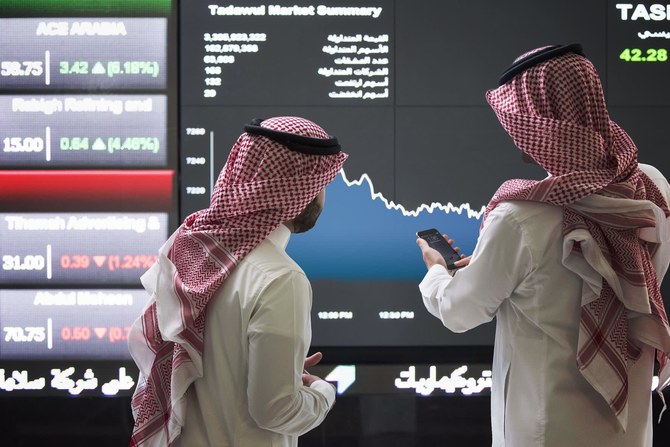
RIYADH: Saudi Arabia’s Tadawul All Share Index closed at 12,465.98 points on Wednesday, dipping 34.45 points or 0.28 percent.
The parallel market, Nomu, gained 92.53 points or 0.35 percent to close at 26,401.91.
Meanwhile, the MSCI Tadawul 30 Index also slightly declined 9.29 points or 0.59 percent to conclude at 1,569.13.
The main index posted a trading value of SR9.5 billion ($2.55 billion), with 96 stocks advancing and 131 declining.
Ash-Sharqiyah Development Co. was the top performer on TASI as its share price surged 9.95 percent to SR21.44. Batic Investments and Logistics Co. followed with its share pricing jumping 9.27 percent to close at SR2.83.
Saudi Ground Services Co. also performed well, climbing 9.09 percent to SR58.80. The Mediterranean and Gulf Insurance and Reinsurance Co. and Almunajem Foods Co. increased 8.53 and 6.32 percent to SR28 and SR117.80, respectively.
Conversely, Fawaz Abdulaziz Alhokair Co. recorded the most significant dip, declining 5.16 percent to SR11.40.
Astra Industrial Group and Etihad Etisalat Co. also experienced setbacks, with their shares dropping to SR175.40 and SR51.39, reflecting declines of 3.73 and 3.39 percent, respectively.
Saudi Chemical Co. and Saudi Real Estate Co. also reported significant losses of 3.08 percent and 2.88 percent to SR7.87 and SR22.22, respectively.
Nomu’s top performer was Future Care Trading Co., which saw a 10.68 percent jump to SR9.64.
Ladun Investment Co. and Mayar Holding Co. also recorded notable gains, with their shares closing at SR5.63 and SR4.10, marking an increase of 9.96 and 7.89 percent, respectively.
Lana Medical Co. and Al-Modawat Specialized Medical Co. also fared well, as their share price increased by 7.25 and 6.92 percent, closing at SR42.90 and SR151.40.
On Nomu, Alqemam for Computer Systems Co. was the worst performer, declining by 9.72 percent to SR90.10. Other underperformers included Saudi Parts Center Co. and Clean Life Co., whose share prices dropped 6.10 percent and 5.71 percent to SR60.0 and SR94.20, respectively.
Chinese businesses shown NEOM opportunities as ‘Discover’ tour hits Beijing, Shanghai
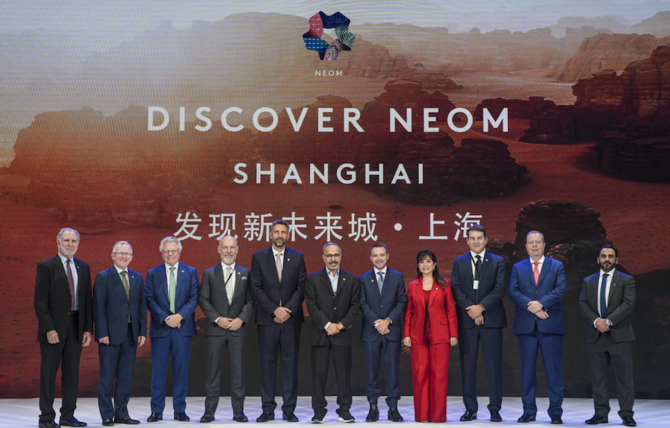
RIYADH: Opportunities for Chinese companies to engage with and invest in NEOM have been showcased in Beijing and Shanghai, attracting significant interest from several companies.
The giga-project kicked off the Chinese leg of its global “Discover NEOM” tour in the capital on April 15, followed by a visit to the country’s biggest city on April 17, attracting a cumulation of over 500 business and industry leaders.
Organized in partnership with the China Council for the Promotion of International Trade Beijing and CCPIT Shanghai, the events featured presentations by NEOM’s leadership team that highlighted on-the-ground progress and milestones, as well as detailed overviews of the initiative’s diverse economic sectors.
Numerous opportunities for Chinese companies to engage and invest in the advanced urban and economic zone were showcased during these gatherings, eliciting significant interest. Many companies expressed enthusiasm and discussed concrete next steps with NEOM’s leadership, according to a release.
“We are grateful to CCPIT Beijing and CCPIT Shanghai for supporting our visit to China and for the opportunity to present NEOM’s vision,” Nadhmi Al-Nasr, CEO of NEOM, said.
“To date, NEOM has already engaged with over 15 major Chinese businesses and invested in a number of Chinese startups to support the growth and diversification of NEOM. Collaboration with China will continue to play a vital role in the development of NEOM, and we look forward to strengthening our engagement with the country’s business community,” he added.
Over 100 Chinese building companies participated in the event’s construction-focused forum, which presented many collaboration opportunities.
Furthermore, the private showcase, “Discover NEOM: A New Future by Design,” was a highlight of the events.
It offered guests an immersive experience exploring NEOM’s developments. These included THE LINE, a 170-km-long city designed as the future of urban living; Oxagon, which is reshaping the traditional industrial model; Trojena, NEOM’s mountain resort; and Sindalah, a luxury island destination in the Red Sea set to open later this year.
“Both Beijing and NEOM are accelerating the development of new modes of productivity, deepening comprehensive reforms, promoting scientific and technological innovation, and working to ensure the protection of our environment,” Guo Huaigang, chairman of CCPIT Beijing, said.
“We look forward to the role our cooperation can have in Beijing’s future prosperity,” he added.
Expressing Shanghai’s interest in fostering its relationship with Saudi Arabia, Zhao Zhuping, deputy secretary general of the Shanghai Municipal Government, stated that the entity looks forward to deepening mutually beneficial engagement with NEOM.
“Discover NEOM China” marks the latest installment of NEOM’s global roadshow, following engagements in major international cities such as Seoul, Tokyo, and Singapore, as well as New York, Boston, and Miami.
Paris, Berlin, and London have also been visited by the expedition.
Saudi crude production hits 7-month high in February
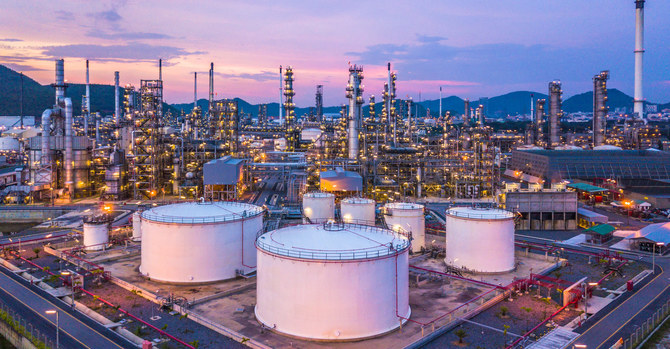
- The Kingdom’s crude exports rose to 6.32 million bpd or 0.32 percent: JODI data
RIYADH: Saudi Arabia’s crude production reached a seven-month high of 9.01 million barrels per day in February, data from the Joint Organizations Data Initiative showed.
This represented a rise of 55,000 bpd or 0.61 percent compared to the previous month.
Furthermore, the data indicated that the Kingdom’s crude exports rose to 6.32 million bpd, reflecting a monthly increase of 0.32 percent.
In early April, the Organization of the Petroleum Exporting Countries and its allies, known as OPEC+, chose to keep their existing output policy unchanged as oil prices hit a five-month high.
Led by Saudi Arabia and Russia, OPEC+ extended voluntary output cuts of 2.2 million bpd until June to bolster the market. The decision was reached during the 53rd meeting of the Joint Ministerial Monitoring Committee on April 3.
Oil prices surged due to supply constraints, attacks on Russian energy infrastructure, and conflicts in the Middle East, with Brent crude exceeding $89 a barrel.
This extension of cuts, alongside voluntary reductions announced in April 2023, including 500,000 bpd cuts from both Saudi Arabia and Russia, now extends through December of this year.
As a result of this decision, despite the monthly increase, crude output remains approximately 14 percent lower than the levels observed during the same month last year.
The next JMMC meeting is scheduled for June 1.
Refinery output
Meanwhile, refinery crude output, representing the processed volume of crude oil yielding gasoline, diesel, jet fuel, and heating oil, surged to a five-month high. It increased by 10 percent compared to the previous month, reaching 2.68 million bpd, according to JODI data. This also marked a 10 percent increase from the 2.44 million bpd recorded during the same period last year.
As one of the world’s leading oil producers, Saudi Arabia plays a crucial role in supplying these refined products to meet global energy demands.
In February, diesel, constituting 38 percent of the total output, declined by 7 percent to 1.02 million bpd, with its percentage share decreasing from 45 percent in January. Motor aviation or jet fuel maintained a 22 percent share, experiencing an 11 percent increase to 597,000 bpd. Meanwhile, fuel oil, making up 17 percent of the total refinery output, saw a slight uptick of 0.22 percent, totaling 455,000 bpd.
Conversely, refinery output exports surged to a 10-month high, reaching 1.39 million bpd, a 12 percent monthly increase. The most significant rise was observed in motor and aviation oil, up by 45 percent to 275,000 bpd. Fuel oil exports followed with a 38 percent increase to 219,000 bpd, while diesel oil saw a 13 percent rise to 629,000 bpd.
In February, 62 percent of refinery diesel oil output was exported, marking the highest percentage in eight months. Fuel oil and motor and aviation gasoline followed suit with export percentages of 48 percent and 46 percent, respectively.
Direct crude usage
Saudi Arabia’s direct burn of crude oil, involving the utilization of oil without substantial refining processes, experienced an increase of 52,000 bpd in February, representing a 17 percent rise compared to the preceding month. The total direct burn for the month amounted to 360,000 bpd.
The Ministry of Energy aims to enhance the contributions of natural gas and renewable sources as part of the Kingdom’s goal to achieve an optimal, highly efficient, and cost-effective energy mix.
This involves replacing liquid fuel with natural gas and integrating renewables to constitute approximately 50 percent of the electricity production energy mix by 2030.
Zain KSA introduces first 100% Saudi-made fleet tracking solution for businesses
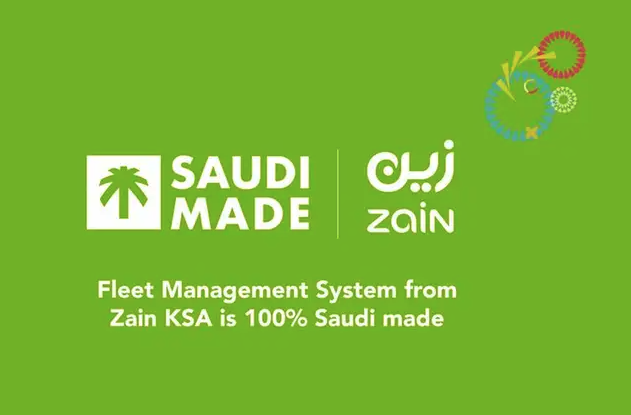
RIYADH: Saudi telecom provider Zain KSA has become the first operator in the Kingdom to offer a 100 percent locally made fleet tracking system for businesses.
The new system is expected to empower businesses in Saudi Arabia to make informed decisions through comprehensive reports generated from precise data collection.
The launch of the system, entirely made in the Kingdom for the business sector, integrates cutting-edge tracking devices that are locally designed, manufactured, and assembled under the country’s “Saudi Made” program, the company said in a statement.
The telecom company further explained that the monitoring solution is a comprehensive cloud-based platform, providing businesses of all sizes with tools to optimize logistics operations, enhance travel routes, and minimize fuel consumption. This, in turn, reduces carbon emissions, preserves the environment, and fosters sustainability.
Saad bin Abdulrahman Al-Sadhan, chief business and wholesale officer at Zain KSA, said: “We are proud to be the first telecom and digital services provider to offer an integrated solution designed and developed in the Kingdom, aligning with our sustainability strategy of supporting local content.”
He added that their achievement aligns with the aspirations of the country’s leadership and Vision 2030 in enhancing the digital economy and localizing technology.
He also emphasized his company’s commitment to building an integrated technological ecosystem aiming at leveraging digitization and automation to serve and empower the productive, service, and logistical sectors across the Kingdom.
The executive further said that their fleet management method is a direct result of this commitment, and they take immense pride in being at the forefront of companies providing 100 percent national digital solutions.
The firm said in its release that by offering real-time GPS tracking, its system enhances road safety and security across the transportation and logistics sectors, empowering decision-makers with crucial insights through comprehensive reports based on accurate data.
It added that the system allows for informed decisions that boost operational efficiency and save costs.



